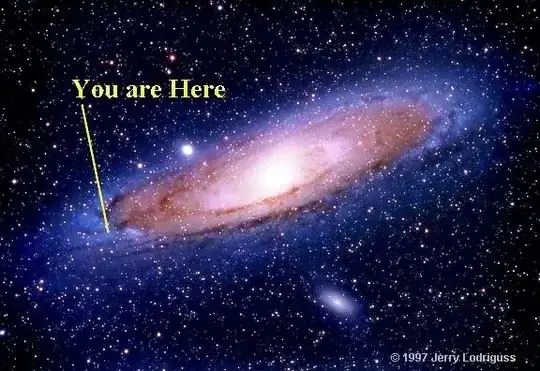Given what we know about space, time and the movement of galaxies, have we or can we determine what our position is in relation to the projected location of the Big Bang? I've read some introductory papers on the superstructure and galaxy cluster movements, but none of them specifically mentioned space in terms of relative or absolute positions relating to the original position of the Big Bang.
So my question is, does our current understanding of the structure and workings of the Universe give us a good enough estimate to determine our location relative to the Big Bang or can we never guess at it, since every viewpoint in our universe looks the same in every direction?
